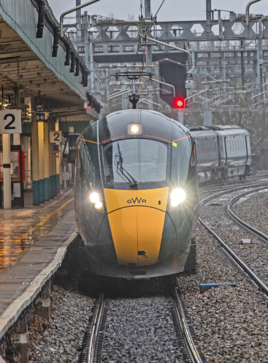The supply industry rightly points to the need for a steady workbank, but this risks a classic ‘chicken and egg’ discussion - the workbank appears when the cost and delivery is successful.
The smaller, more specialist, contractors who can add real value to the way we do work are often the most committed to skills development, because it is part of the superior product they seek to sell.
It is these who need a reasonable belief that work will come, because they deliver well and won’t be crowded out by a cheap, low-skill competitor offering short-term price advantage at tender and little commitment to quality delivery later.
A bold client not measuring its project managers by short-term criteria alone makes the difference. There are some good examples in small-scale buildings and stations works around the country, so it can be done.
One bright spot in the past decades has been the improvement in personal safety of project work, which is rightly lauded. Much of this has been through cultural challenge on the ground.
However, given the importance of working separated from trains, the British approach to possessions of the line has tried to improve through layering additional process and ‘assurance’ sticking plaster, rather than stepping back and fundamentally reviewing just what we are asking people to do in hundreds of locations every week.
Any human factor analysis of British procedures and rules around taking, managing and giving up track possessions would conclude that they are so complex and multi-staged as to be virtually impossible to follow. Attempting to ensure safety by adding yet more process, in response to the inevitable failures which occur precisely through such complexity, is the clearest definition of insanity.
If most of the developed world, with similar expectations of the value of human life, expects to be starting work within ten minutes of the last train passing - using a short sequence of actions (not the 16+ of the British way) repeated, trained and rigidly audited - then we have to ask if we are the only dancer at the party in step with the music.
While the starting point of re-thinking the way that possessions are undertaken should be safety, the prize is equally productivity and cost-effectiveness - they are entirely complementary. Far more cost-effective work can hardly be expected until the way possessions are managed is dragged into the 21st century.
Behind this approach lies the big opportunity of standardisation. Standard specifications, solutions, tasks, project plans and possession activities are the gift that keeps on giving.
The work team achieves better and faster results from becoming expert at doing the same (or nearly the same) repeated activity. The work planning is simplified with off-the-shelf method statements, and fewer special non-standard drawings and details. Ordering of materials and construction equipment has less cause for error.
At its simplest, this is enforcing manufacturing production line discipline into an archaic infrastructure world. Unsurprisingly, when people are doing tasks that they understand and are properly trained for, while understanding from minute to minute what’s happening around them, safety risk is reduced.
The next efficiency gain is greatly reducing the industry that has grown up around bespoke work - the one-off method statements, the unique work content briefing, and the layers of assurance that any of this has been calculated correctly, let alone communicated and understood.
The control on errors in planning today is yet more assurance, and we need to reverse this culture. The cost avoided through not employing armies of process managers is really significant, but still pales compared with the even greater benefit in everyone doing what they understand well, and safely.
Put simply: everyone - business sponsors, engineers, project managers (including by DfT and the Office of Rail and Road) - needs to embrace the approach that most work can be specified from a small suite of ‘pre-assured’ standard jobs which deliverers (from planner to operative) repeat in rolling programmes week after week.
To be guarded against is the seductive whisper that “we could save a bit here if only we could adopt a non-standard approach”. This may sometimes be true, but it needs robustly challenging against the savings from the bigger picture. If it is a genuinely special case, then fine. Otherwise, if it is a better way, then change the standard process for everyone.
Likewise, standardisation of work does not mean turning our backs on innovation. Conversely, it makes it easier. As opportunities arise, they can be trialled once and then systematically adopted, rather than rejected because “we do things differently here”.
Another cultural shift is the assumption that designers, estimators and allied trades will lose out from not working each scheme from first principles. At one level this is true, but investment work is meant to be for the benefit of passengers and freight users… and funders,
Remember: the prize in the future is funding of the projects that the railway needs - an assured rolling programme - not maximising jam today and pricing this industry out of its future.
Standard specifications are not the same as blindly listing generic standards. Professional engineering is about selecting from standard approaches and details what is genuinely appropriate for any project, and explaining cogently to business managers and sponsors the scope that has genuine impact on cost and alternatives which, in that situation, would be almost as good at a significantly reduced cost. Simply doing whatever the client first asks for is simply unprofessional.











